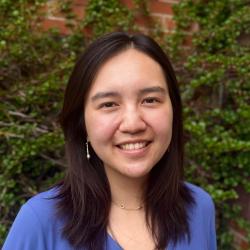Research
Throughout pregnancy, the human fetus relies on the placenta, a transient tissue
positioned at the interface with the mother. During placentation, specialised placental cells called trophoblasts invade the uterus, and disruptions to invasion can cause life threatening pregnancy complications. New trophoblast organoids provide an effective means to study this process, but challenges persist, particularly because their culture relies on Matrigel, which is limited in reproducibility and tunability. Synthetic hydrogels overcome such limitations by offering robust autonomy over both biochemical (extracellular matrix (ECM) molecules present) and biophysical (stiffness) properties. In my MPhil research, I will use synthetic hydrogels to create a new model for trophoblast invasion and apply single-cell technologies to benchmark the model against in vivo atlases of human early pregnancy. This work will provide valuable insights into the extracellular regulation of placentation and establish a foundation for future models compatible with uterine cells, microfluidics, and genetic screening.
Publications
Wong, F. C., Kim, C. E., Garcia-Alonso, L. & Vento-Tormo, R. The human endometrium: atlases, models, and prospects. Curr. Opin. Genet. Dev. 92, 102341 (2025).


